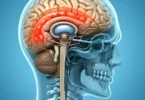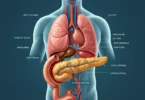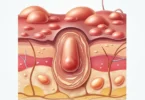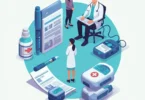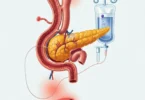CANCER – A DISEASE OF THE GENES
Cancer or carcinoma is a genetic disease which arise when certain change occur in portions of the genetic material. These changes are not be repaired and the genetic information become “corrupted”. The older a person is, the probability of repairing gene is less . This is reflected in the incidence figures: The average age for men and women is 69 years. However, cancers also affect particular younger adults. This includes, for example, testicular cancer: The mean age in this case is 38 years.
CAUSES AND CARCINOGENIC FACTORS
Cancers based on changes in the genes. For most types of cancer, however, the genetic abnormalities occur after birth. Among the factors that modify the genes(mutation) are carcinogenics, include ultraviolet rays, tobacco smoke, chemicals, chronic infections, an increased consumption of alcohol and an unhealthy lifestyle with little fruit, vegetables and exercise. In five to ten percent of cases, the changes are hereditary. In affected families cancer occurs in every generation at an early age.
WHAT MAKES TUMOR CELLS SO DANGEROUS?
Cancer cells stimulate themselves to divide and ignore growth inhibitory signals from the cell environment. Cancer cells can divide indefinitely and are potentially immortal. It will be able to tap into existing blood vessels for their own survival. The most dangerous feature of cancer cells, however, is to invade adjacent tissue, and spread in the body to form secondary tumors at distant sites. In particular, these metastases make a malignant tumor on the life-threatening danger.
SYMPTOMS OF CANCER
In the early stages, most forms of cancer often cause no or only mild symptoms. However, there are a number of signs that can specify cancer and the doctor should definitely clarify with prolonged existence can specify.
Possible cancer symptoms include:
• Skin changes (warts, birthmarks)
• Persistent cough or hoarseness, bloody sputum when coughing
• Persistent difficulty swallowing, stomach, colon or indigestion
• Blood in the stool
• Palpable lumps or thickening of the skin and in the breast and testicular
• Unsual menstrual bleeding or discharge
• Not or poorly healing wounds and ulcers
• Blood in the urine, and painful urination disorders
• Unexplained pain origin
• Persistent loss of appetite and unexplained weight loss
• Paleness and anemia, constant fatigue, malaise, loss of power
When in doubt, you should always consult a doctor for such complaints. Earlier the cancer is detected, greater the chance of cure.
STATISTICS OF CANCER
Cancer is one of the greatest enemy of humanity. On the contrary: By 2015, the number of people who develop cancer annually will increase considerably and warns the WHO to calls for stricter laws.
By 2025, 20 million people worldwide could develop cancer which about 40 percent more than at present. This is the result of a study by the World Health Organization (WHO). In the next two decades even an increase of around 70 percent is possible. According to World Cancer Report 2014 of the International Agency for Research on Cancer (IARC) in 2012, there had been around 14 million newly diagnosed. Approximately 8.2 million people have died from cancer per year. Over the next two decades, the number will increase to up to 13 million. According to the report the huge increase in the predicted population growth and increasing life expectancy is responsible. They also state that harmfull behavior and an unhealthy lifestyle with little fruit, vegetables and exercise is responsible for this.
TYPES OF CANCER
types of cancer:
• Anal cancer
• Bile Duct Cancer
• Bladder cancer
• Bone Cancer
• Cancer in adolescents
• Childhood cancer
• Cancer in young adults
• Cancer of Unknown Primary
• cervical cancer
• Colon / rectum cancer
• Endometrial cancer
• Esophageal cancer
• Ewing family of tumors
• Eye cancer
• Gallbladder cancer
• Gastrointestinal carcinoid tumors
• Gastrointestinal stromal tumors (GIST)
• Gestational Trophoblastic Tumors
• Hodgkin’s disease
• Kaposi’s sarcoma
• Kidney cancer
• Larynx and hypo pharynx cancer
• Leukemia
• Leukemia – Acute Lymphocytic (ALL) in adults
• Leukemia – Acute Myeloid (AML)
• Leukemia – Chronic Lymphocytic (CLL)
• Leukemia – Chronic Myeloid (CML)
• Leukemia – Chronic myelomonocytic (CMML)
• Leukemia in children
• Liver Cancer
• Lung Carcinoid tumor
• Lymphoma
• Lymphoma of the skin
• Malignant mesothelioma
• Multiple Myeloma
• myelodysplastic syndrome
• Nasal cavity and paranasal sinus cancer
• Nasopharyngeal cancer
• Neuroblastoma
• Non-Hodgkins Lymphoma
• Non-Hodgkins Lymphoma in Children
• Osteosarcoma
• Ovarian Cancer• Penile cancer
• Pituitary tumors
• Prostate cancer
• Retinoblastoma
• Rhabdomyosarcoma
• Salivary gland cancer
• Sarcoma – Adult Soft Tissue Cancer
• Skin cancer
• Skin Cancer – Basal and Squamous Cell Carcinoma
• Skin Cancer – Melanoma
• Skin cancer – Merkel cell
• Small Intestine Cancer
• Stomach cancer
• Testicular Cancer
• Thymus Cancer
• Thyroid Cancer
• Uterine Sarcoma
• Vaginal Cancer
• Vulvar cancer
• Lymphoplasmacytic lymphoma (Waldenstrom macroglobulinemia)
• Wilms Tumor (kidney Cancer)
Cancer Treatment or cancer therapy
PRECAUTIONS
• Keep your self away from carcinogens
• Do not use tobacco
• Eat healthy diet
• Avoid sun
• Avoid ionizing radiation
• Get immunize
• Avoid risky behavior
• Ger regular medical care
Note
When in doubt, you should always consult a doctor for such complaints. Earlier the cancer is detected, greater the chance of cure.

